Finding a Means for a Greater Good: Meet New VACEOs Member Dr. Anthony Duncan
When Dr. Anthony Duncan isn’t working hard on his new franchise business, he’s actively seeking ways to help at-risk youth in the Richmond area. His desire to make a difference led him to an opportunity with the well-known Mosquito Authority franchise, but it was his faith that propelled him to greater action.
While attending a formal presentation about the franchise opportunity, Duncan had a revelation. “I decided that if I wanted to make a strong impact with little worry about finances, then this franchise opportunity would allow me to really do that,” he explains.
Duncan purchased the Richmond Mosquito Authority territory in 2010, but subsequently found little time to work on the business. In 2011, he got a push from above that moved him forward.
“I was sitting at home wondering what I was doing. I went into deep prayer, asking God for direction. I heard God very clearly. I went later to bible study, and I told my pastor about it. He said, ‘You know what to do.’ I talked to my wife, then went to work and gave my two weeks’ notice.”
Since then, this entrepreneur, who admits he has “no business background whatsoever outside of running a private practice,” has expanded his business into Maryland and New York – and hopes to eventually do business in Puerto Rico, a place that’s particularly dear to his heart.
We sat down with him and asked about his background: “Why do you feel called to work with at-risk youth?” “Do you have to be crazy to want to be CEO?” And, “What do you dream about?” Here’s what this Richmond entrepreneur and new member of the VACEOs had to say.
Q: Your background includes a deep appreciation for psychology as well as franchise ownership. First, why psychology?
A: When I was an undergrad student, I met a professor who taught Intro to Psychology. His name was Dr. Adolph Brown III. Psychology really resonated with me – the attempt to understand behavior. Dr. Brown became my mentor. He told me I must get my doctorate, and so I did!
Q: After you received your doctorate, you worked with youth at the Department of Juvenile Justice. What is it about working with young adults that calls to you?
A: I come from a single-parent family background. I was raised by my mom, and I have two brothers. She worked really, really hard. I found myself going to college and becoming able to navigate through life successfully, and I really wanted to give back and work with individuals like me who come from single-parent families. I was at the Department of Justice for about five years. I really enjoyed that experience.
I’ve moved on from the Justice Department, but I’m still really focused on reaching this segment. Last year, we developed a mentoring program for 10 young adults in our office. I’m pretty tough – helping them understand that if you want to play in the marketplace, you need to have high standards. There’s no such thing as perfection, but you need to always strive for excellence and always want to get better.
Q: You’re a trained clinical psychologist who’s now a successful franchise owner. We have to ask: Do you have to be a little crazy or unbalanced to want to be an entrepreneur?
A: Well, we don’t use the word “crazy,” as it’s not a technical term! But if you think about the word “unbalanced” and being an entrepreneur, it’s hard to stay balanced. Obviously, we want to mitigate as much risk as possible, but we do take on a lot of risk – because that’s where the reward lies. Plus, there are only 24 hours in day. This whole idea of balance and being an entrepreneur is idealistic. The key, I’ve found, is to be cognizant and aware of the times I’m not engaged with my family.
Q: What are your business and personal goals? What do you dream about?
A: As I mentioned, I was raised by my mom, who is from Puerto Rico. I have this desire and obligation to make sure she is taken care of. That’s what keeps me up and keeps me going. I really want her to enjoy the fruits of my labor because of all the sacrifices she’s made for herself and her kids.
Q: Your mother is from Puerto Rico. Have you been there?
A: Yes! I dream about maybe one day retiring there and having a small mango farm. I was able to go back most recently after Hurricane Maria; I was compelled to go there and do something. I had the opportunity to take the team to the U.S. Virgin Islands to do mosquito control pro-bono work out there for a week. Then we went to Puerto Rico. Unfortunately, the infrastructure was not in place to do more pro-bono work, but we connected with FEMA and distributed food and water to the elderly in the Fajardo region. That was really fulfilling.”
Thanks for taking the time to meet with us, Anthony. And welcome to the Virginia Council of CEOs!
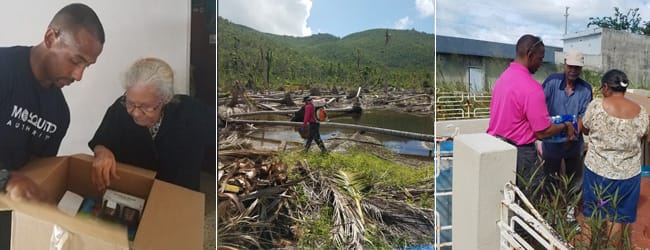
Dr. Anthony Duncan and his team help U.S. Virgin Islands and Puerto Rico victims of Hurricane Maria.
Becoming Something Bigger: David Gallagher’s Story
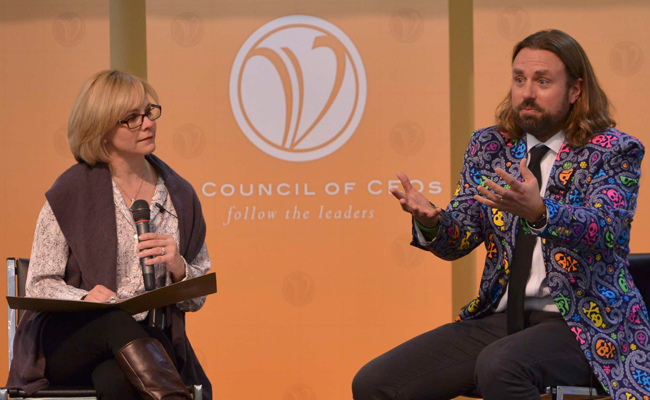
Robyn Zacharias, President, Barber Martin and VACEOs member, interviews David Gallagher, CEO, Dominion Payroll during January Quarterly Luncheon
It’s easy to get lost in the focus on business, isn’t it? The changing environment. Mergers. Acquisitions. Unprecedented revenue gains. Inevitable downturns. The addition of employees and business lines. New business ventures. It can become a constant pull.
But on January 25, 2018, I was pulled in the direction of a different narrative: one about a fellow CEO’s emotional and physical transformation. From lack of fulfillment to purpose. From focus on self to focus on community. A transformation that would ultimately result in a life lived more genuinely and a business fueled more by inspiration.
The story I heard was that of David Gallagher, CEO of Dominion Payroll. In business for only 15 years, Dominion Payroll is a global nine-time Inc. 5000 honoree that employs approximately 150 people. The company’s new headquarters is located in Richmond’s trendy Scott’s Addition.
But David’s metamorphosis was triggered by an unspeakable tragedy. In his words: “I’ve been to hell and back, and I’ve come back saying, ‘I’m not the man I was. I’m not. I’m bigger. I’ve been touched, and I’ve been inspired.’”
For David, everything has changed. Personally. Professionally. Physically.
Everything.
His focus is now clear. And he’s free to be the man and the CEO he always wanted to be. He’s no longer the formal entrepreneur I met back in 2003, when he became a VACEOs member. His demeanor is more spiritual. His hair much longer. He wears a wicked jacket with colorful skulls on it.
On January 25, he told the audience at the VACEOs Quarterly Luncheon, “I went through a very significant mental shift. I don’t look at myself or behave the same way I did 10 years ago … I don’t need to disguise anything. I believe my leadership style and the way I interact with people is infinitely more genuine because I’m thinking and acting more like who I am.”
David’s journey is about a successful business person who always longed for a greater purpose in life. It’s also about the utter heartbreak following the death of his 16-year-old daughter Cameron from an undiagnosed heart condition in 2014. It was the convergence of these two forces that proved to be the catalyst for his personal and business transformations.
Inspired by their daughter’s work to help adolescents battling depression, David and his wife, Grace, established the Cameron K. Gallagher Foundation.* Their passion soon became the passion of employees at Dominion Payroll, as well.
“I devoted all my heart and energy to the Cameron Foundation,” David says. “My Dominion Payroll people said, ‘We’re with you!’ And all of you guys [VACEOs members] said, ‘We’re with you! We’ll change the world with you!’ And we all joined forces and got to where we needed to be. Now everything in my business has changed.”
David admits he had concerns about merging his two worlds – his cause and his business. But the voice of his employees was too loud not to hear: They wanted the cause to BE the business.
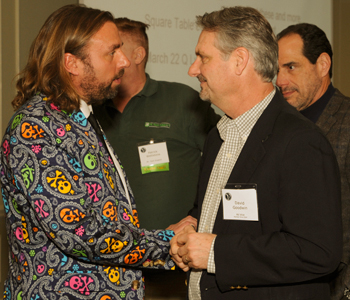
“A CALL FOR COMMUNITY ACTION”
Now Dominion Payroll’s incredible growth is fueled by the culture inside the business – employees’ belief in a common purpose and their knowledge that they are working for something much greater than themselves or the task at hand.
“In fact, my employees, I think, would tell you today that the reason they are with Dominion Payroll has nothing to do with payroll,” David explains. “They would say, ‘I’m there because I have a call for community action. I have a social justice that I have to bring to the world.’ And if I’m great at my business, and if I inspire people there, then I can do more here. Then I can be great to the community.”
Today, David has fulfilled the dream of his younger self. He’s a part of something much larger than his own life and his own business. He is a self-proclaimed “community instigator,” driven to build up communities. His perspective is much wider, and he has a greater spiritual presence.
His parting words to the VACEOs audience – articulated in such way that the emphasis was unmistakable – were: “Everything you do matters. Everything. You do. Matters. You go to Starbucks, you meet someone, you don’t say hello to the person next to you, you get a little angry – that vibe goes everywhere. It goes everywhere. And you are, I am – WE are – the sum total of all of that.”
I am proud to call Dave a friend, and to have him in the VACEOs community. While he is extraordinary in his own way, I find amazing stories like this in all 220 of our members. What a gift to be in relationship with this group of people.
– Scot McRoberts, Executive Director, Virginia Council of CEOs
*About the Cameron K. Gallagher Foundation
The Cameron K. Gallagher Foundation is a beacon of hope for those who are affected by teenage mental illness. We help empower teens and their families to proactively take care of their mental health and to seek help when they need it. Learn more: http://www.ckgfoundation.org.
For the Health of It: Buckingham Greenery Turns 35
It’s a great story: a business owner finding success with a hobby they love. But look closer. This tale has much more to offer.
Connie Hom’s business, Buckingham Greenery, has an employee retention rate that is unbelievably high (over 90 percent) in an industry with an employee base that can be, for the most part, transient and seasonal. And its CEO? She’s still keeping a promise she made to herself more than 35 years ago – and following a passion that’s about much more than delivering pretty plants.
Here’s the story of the amazing, blossoming ecosystem that is Buckingham Greenery, Inc.
“I’m Most Passionate About What Plants Do.”
It might not be surprising to hear that Hom always had an affinity for plants (she grew up on a farm in New Jersey). What might be surprising to some is that she describes her level of horticultural literacy as “hobby knowledge.” Instead, her passion centers around the environmental impact plants offer. “Everyone loves plants because they’re pretty, but I’m most passionate about what plants do,” she says.
“The average person works eight to 10 hours a day in a closed space with closed windows,” she explains. “A lot of the products that surround us are petroleum-based products that release toxins. Toxins can also be found in linoleum, carpet, wood, paints, furniture, desks, and even our refrigerators. The printers and copy machines we use at the office are the worst, because of the toners. We’re surrounded by a lot of toxins in the air, which may be filtered, but we’re continuously filtering bad air.”
Her solution? Plants. “It’s a very cost-effective way to have a healthier environment and healthy employees,” says Hom. And it’s why she’s dedicated a large portion of her time to helping with a NASA interior landscape study and speaking to business owners and industry leaders about the environmental and health benefits of plants. (Watch video to learn more.)
5 BENEFITS OF INDOOR PLANTS
1. Better indoor air quality
2. Improved mood and productivity
3. Reduced stress levels
4. Faster recovery from mental fatigue
5. Decreased workplace absenteeism
(source: source: houseofplants.com)
“If I Ever Own a Business….”
Hom founded Buckingham Greenery in 1982 in Buckingham, Virginia, and for the past 35 years, she has brightened the interiors of some of Richmond and Central Virginia’s most prominent commercial spaces and adorned countless hospital waiting rooms, small business offices, universities and mall courtyards with her work. From Fortune 500 companies to regional healthcare facilities to national retail chains, her business’ portfolio is as complete as it is diverse. It’s also a business that has survived three recessions.
Today, the company employs approximately 25 people and has satellite facilities in Richmond, Charlottesville and Norfolk that serve Richmond, Fredericksburg, Chesterfield, Colonial Heights, Petersburg, Norfolk, Virginia Beach, Williamsburg (all of Tidewater), Charlottesville, Harrisonburg, Staunton, Lynchburg, Roanoke, Christiansburg, Blacksburg and, of course, Buckingham.
We recently caught up with Connie at her Richmond location, which is Buckingham Greenery’s “Christmas Headquarters,” and it’s abuzz with activity. Holiday music plays in the warehouse, which, at the moment, is a holiday forest of nearly 100 fully decorated trees. Enormous wreaths hang from the rafters; ornaments, ribbons and holiday displays abound; and champagne reindeer adorned with rhinestones watch on, awaiting their turn for delivery. The space exudes creativity and fun, and we were introduced to each and every employee.
Amidst the hustle and bustle, we learn about a promise Hom made to herself years ago, after a disheartening experience she had working in “Corporate America.” It’s a promise she still keeps today. “I never wanted to be in a place where people couldn’t excel or reach their full potential or like what they were doing,” she says. “I told myself, ‘If I ever own a business, I want to be sure that people are not complacent – that they’re always challenged, and they don’t have this mediocre mentality. The ‘just get by until I retire’ mentality.”
Hom is far from complacent these days. “I want everything!” she tells us. And she’s on her way to getting it. More inorganic growth by way of acquisition is in the near plans for Buckingham Greenery. We couldn’t be happier for her.
Happy 35th anniversary, Connie Hom and Buckingham Greenery!
CONNIE HOM SHARES
7 MANAGEMENT LESSONS SHE’S LEARNED
- Find someone to supplement an area of weakness for you as the CEO.
For Hom, that meant a horticulturalist to supplement her “hobby knowledge.” - Learn how to adapt.
“We’ve been through three major recessions,” says Hom. “As a team, we figure out how to adapt. We’re always thinking ahead.” - Diversify your portfolio.
Over the years, Buckingham Greenery has broadened its market base: an important reason why the business has survived three recessions. - Know when to hire.
If you need to be well staffed for a certain business cycle or time of year, factor in time for the learning curve. - Keep employees happy.
How? “Find jobs or clients that will challenge them,” Hom explains. “Empower them and let them do their job!” - Have a code.
Buckingham Greenery operates strictly by four core values. “Every Monday morning, we share examples of how we met our values the week before,” says Hom. “We make decisions by our values, and it makes a difference. We live by them. It’s not just something on the wall.” - Express gratitude.
Hom likes to write thank-you notes to her team and clients. “They’re giving you the opportunity to blossom and to grow!”
Meet Charlottesville CEO Donny Wyatt of CoConstruct
What’s that old saying? “Contempt breeds new business?” OK, maybe we made that up, but for Donny Wyatt, CEO of CoConstruct, it was a feeling of contempt that ultimately led to him starting his third business.
The Charlottesville CEO and newly minted VACEOs member is embracing the challenges that come with transitioning from founder to CEO. And even though his business just achieved Inc. 5000 status for the fourth time, this CEO admits to experiencing some growing pains that may sound familiar.
A Funny Thing Happened on the Way to Inc. 5000 Status
Donny Wyatt holds a BS in commerce, marketing and finance and an MS in MIT from University of Virginia, and he’s had a long-time infatuation with IT startups. SubletIt.com, LLC – a website designed to help college students list and find subleases on apartments and homes – is one of the business ventures you’ll find documented on his LinkedIn page. (He founded SubletIt just after graduation.) Interestingly enough, AccuNotes, the first venture Wyatt started while at UVA, is not.
With a laugh, he explains that the UVA administration wasn’t crazy about the online note-taking service he created for students. He was asked to shut the company down. What did he learn from the experience? “Never underestimate the human factor,” he says. “You can reference as many spreadsheets as you want, but I didn’t see that one coming!”
Fast-forward to 2005, and you arrive at the birth of CoConstruct. The idea for the company came after Wyatt experienced a “subpar” level of satisfaction with his own custom home-building experience. “It was exhausting going through last-minute fire drills during the process and constantly asking where random bills for thousands of dollars come from,” says Wyatt. “It was just a lot of surprises. And in the end, we felt like we were running the project, as opposed to the builder.”
He quickly realized his experience wasn’t unique after speaking to others. “That’s when I said, ‘Maybe there’s an opportunity here.’”
The result? A company that provides project management software for custom home builders and remodelers. “We handle the three big areas they deal with, which are coordinating their projects, communicating with clients and team and trade partners, and controlling the financials of their projects,” explains Wyatt. “We’re an enterprise-level system that happens to be for small custom builders and remodelers.”
Wyatt reports the company is on track to reach revenues near $10 million for the year, with about a quarter of his business coming from outside the United States. With a current staff of 65, Wyatt says he plans to “scale to whatever size we need to fulfill the demand,” which, by his estimates, encompasses about 90% of his target market in the U.S. – individuals and companies who aren’t using project management software and have a need.
Finding Joy in the Struggle
Wyatt admits he spends a fair amount of time focused on finding the right employees to help him scale to size. He says he’s also felt a few personal growing pains a long the way. Like many CEOs, he struggles with work-life balance. (When asked what he does for fun, he says he works.) “I love what I do,” he says. “It’s fun, so I don’t have a lot of hobbies outside. I realize I need to work on my work-life balance. I get some of my best ideas when I’m unplugged, when I’m not doing work stuff, so one of the most productive things I can do is take time off.”
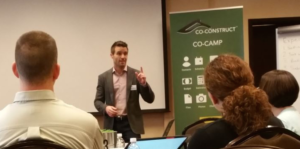 It’s no surprise that even when he’s trying to tune out, Wyatt is thinking about new ways to be productive. After all, he’s experiencing a lot of joy these days – even though he has a struggle here and there. “This is by far the largest team I’ve had right now, and I’ve found that the transformation from entrepreneur or founder to CEO is not always easy,” he says. “For example, it’s all too easy to assume that I’ve communicated a message well when I really haven’t. I’m getting better at making sure my team is aligned and shooting for the same thing.”
It’s no surprise that even when he’s trying to tune out, Wyatt is thinking about new ways to be productive. After all, he’s experiencing a lot of joy these days – even though he has a struggle here and there. “This is by far the largest team I’ve had right now, and I’ve found that the transformation from entrepreneur or founder to CEO is not always easy,” he says. “For example, it’s all too easy to assume that I’ve communicated a message well when I really haven’t. I’m getting better at making sure my team is aligned and shooting for the same thing.”
“I’m finding what’s most rewarding and exciting for me is that there have been a lot more opportunities lately to leverage my role as CEO and the size of our business,” he continues. “We can have a meeting, make a big decision, and with a lot of thinking and a little effort on my end, we can make really big, important changes for our customers. That’s something you can’t do when there are only three or four of you and you’ve got to execute that all on your own. It’s really exciting and incredibly rewarding to see that.”
Welcome to the VACEOs family, Donny!
Are you a Charlottesville CEO in need of peers who can relate and provide support in a confidential environment? Or do you need real and invaluable insight or a way to help you move through challenges and become “unstuck”? We’re forming roundtables in Charlottesville. Visit Get to Know Us or Why Join today.
Meet Caryn Foster Durham: CEO of Charles Ryan Associates
Caryn Foster Durham firmly believes in making the world a better place. One look at her LinkedIn profile tells you this West Virginia native wants to make a mark on Virginia tourism and economic development, and that she’s a strong advocate for women in business.
As the first in her family to graduate college, Durham’s ultimate goal is to be a role model for her two girls. She wants them to understand that, “You don’t have to play cards you’re dealt; you can often ask for a new hand.”
Twenty-one years ago, Durham began working at marketing firm Charles Ryan Associates (CRA). Management immediately took her under their wing, intentionally grooming her to take over the business when the time was right. She became a minority owner in 2007, and in 2015, she and business partner Susan Lavenski became sole owners. In 2016, three long-time employees – Matt Isner, Matt Fidler and Alisha Maddox – were added to the partnership team.
“Empowering Yourself”
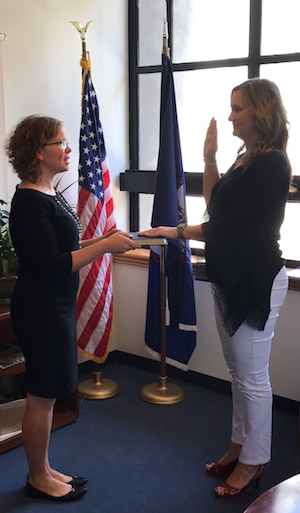 In July of this year, Durham was officially appointed by Secretary of the Commonwealth Kelly Thomasson to the Virginia Council on Women. “I own my business, employ 35 people and do business across many states, so I hope to bring some perspective about business and what’s happening in the contiguous states,” says Durham. “Also, I have access to resources that can help on a larger level through my and association with the National Association of Women Business Owners (NAWBO) as the past president of the Richmond chapter as well as my involvement with the Women Impacting Public Policy (WIPP) and U.S. Women’s Chamber. And I’d love to help Virginia get back to the number one spot on the ‘Best States to Do Business’ list!”
In July of this year, Durham was officially appointed by Secretary of the Commonwealth Kelly Thomasson to the Virginia Council on Women. “I own my business, employ 35 people and do business across many states, so I hope to bring some perspective about business and what’s happening in the contiguous states,” says Durham. “Also, I have access to resources that can help on a larger level through my and association with the National Association of Women Business Owners (NAWBO) as the past president of the Richmond chapter as well as my involvement with the Women Impacting Public Policy (WIPP) and U.S. Women’s Chamber. And I’d love to help Virginia get back to the number one spot on the ‘Best States to Do Business’ list!”
The stated purpose of the Virginia Council on Women is “to identify ways in which women can reach their potential and make their full contribution to society and the Commonwealth.” What are some of the barriers Durham feels are keeping women from reaching their potential? Her answer may surprise you.
“A few months ago, I was asked to keynote a women’s entrepreneurship conference in Virginia Beach,” says Durham. “The speech I chose talked about empowering yourself. We are, in my opinion, our own worst barriers to success. That’s obviously a blanket statement, but, by and large, we hold ourselves back more than anyone else. We doubt ourselves and don’t trust our intuition, for example. And we can be unkind to each other.”
“If we’re going to break that ceiling, we have to bring other women with us, and we need to include men in the conversation, because you can’t change the trajectory of things if you only have one side of the equation,” she continues. “We need to take responsibility for our own path.”
Finding Like Minds in VACEOs
The path Durham chose led her to the Virginia Council of CEOs in 2013. “My roundtable is invaluable to me,” she says. “One reason I wanted to join the Council was that I’d never been a CEO before. I knew how to make money and how to hire – I’d been doing that for years before I became the owner of a business – but I didn’t know how to be a CEO. The best gift my roundtable gave to me was the realization that I do know what I’m doing, I’m doing things right, and the questions I have are the same questions that other CEOs have.”
“My roundtable is invaluable to me” – Caryn Foster Durham, CEO, Charles Ryan Assoc.
The business owners in Durham’s roundtable group represent organizations that are the same size as hers, but they all vary in lifecycle stage and industry. “That has been equally gratifying,” she explains. “I truly feel like they have had a positive impact on my business and have helped me be a better person and CEO. I truly feel like I have helped them, as well.”
Durham says she wants to bring similar peace of mind to other businesswomen and will work actively with the VACEOs team to develop events that will attract this underrepresented market. In fact, you’ll find her co-hosting an event with VACEOs this fall!


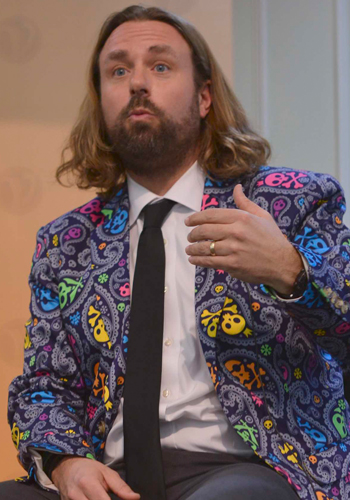
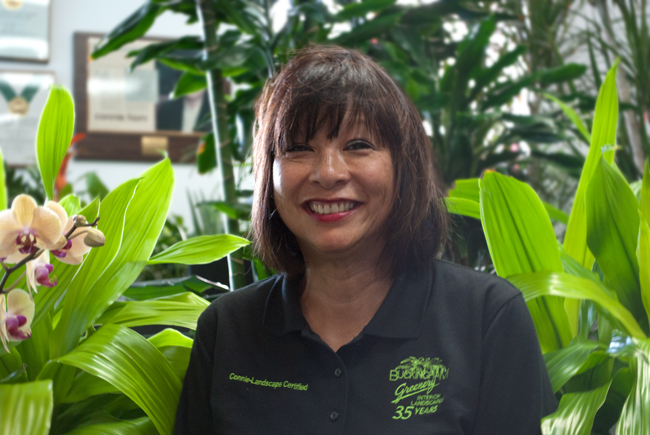
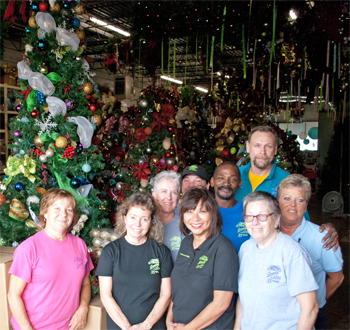
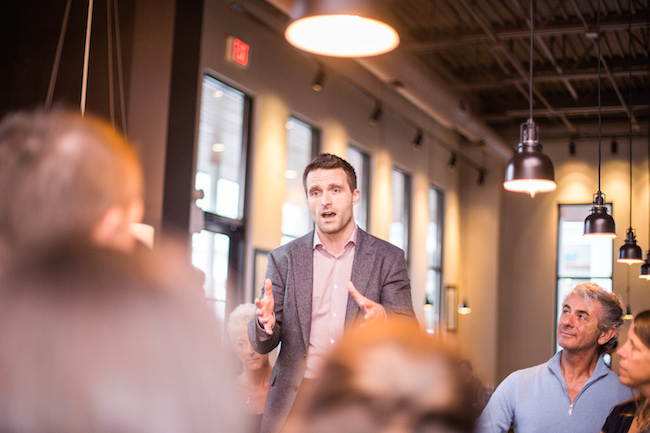


Recent Comments